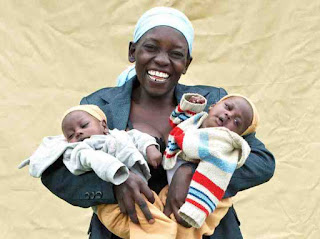Reuters: In Kenya, Turkana county inspires hope

At this time of the year, people living in rural parts of Turkana County are among the hardest hit by the on-going drought in Kenya. The United Nations and the Government of Kenya approximates that 2.7 million Kenyans are facing acute food shortage and the Government has declared the drought a national disaster. Things are looking up for Turkana County nevertheless. Not least in the reasons for new optimism is the fact that in 2012, the Government of Kenya announced that substantial oil deposits had been discovered in parts of Turkana County . Though it will be a while before the petrodollars begin to reflect in the economy, indicators such as an increase in services and jobs, expansion in activities in the hospitality industry, and increase in the frequency of flights to the county’s main town of Lodwar suggest a bright future. My take: http://news.trust.org/item/20170304160048-k6ti8/





